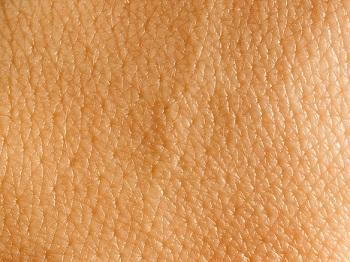Did You Know? Fascinating Facts about Your Skin
posted: Mar. 14, 2018.
 Human skin is a remarkable organ, but one we often take for granted. It does more than hold us together and look presentable. It’s a complex system that protects our internal structures from outside damage. The skin is made up of three main layers: the epidermis (outer layer), the dermis (the middle layer) and the subcutaneous layer (the inner layer). Components of the skin include hair and nails.
Human skin is a remarkable organ, but one we often take for granted. It does more than hold us together and look presentable. It’s a complex system that protects our internal structures from outside damage. The skin is made up of three main layers: the epidermis (outer layer), the dermis (the middle layer) and the subcutaneous layer (the inner layer). Components of the skin include hair and nails.
The skin is more interesting than you think. Here are just a few fascinating facts:
Skin is Your Body’s Largest Organ
The skin is the largest organ in the body, weighing 12-16% of a person’s total body weight. The average adult is covered with approximately 20 square feet of skin weighing about 6 to 9 pounds.
Skin Protects Your Body
The skin acts as a barrier between us and our environment, insulating and protecting the organs, muscles and bones from external threats - everything from dust and dirt to bacteria and viruses.
Skin Regulates Body Temperature
The skin releases as much as three gallons of sweat a day in hot weather. Your skin helps control body temperature by distributing heat through the skin and by preventing dehydration.
Skin Informs
The skin is a sensory organ, and has receptors for detecting hot and cold, touch, pressure and pain.
Other unique facts about the skin include:
- The skin is composed of approximately 300 million skin cells.
- Every half square inch of the human skin has approximately 100 sweat glands, 10 hairs, 15 sebaceous glands, and 3.2 feet of tiny blood vessels.
- A large percentage of the dust in your home is actually dead skin.
- Your skin sheds a layer of dead skin cells every day and is constantly renewing itself.
- Goose bumps are actually small pimples that help retain a layer of warm air over our body.
- Human skin is the thinnest on the eyelid.
Human skin varies in type, color and texture for every person, but everyone’s skin serves the same primary purpose - to protect our insides! Your skin is very important, which means you should take care of it by protecting if from the sun, moisturizing it regularly, and practicing good daily skin care. Whenever you detect an unusual skin spot or suspect a problem with your skin, contact your dermatologist for an evaluation.

